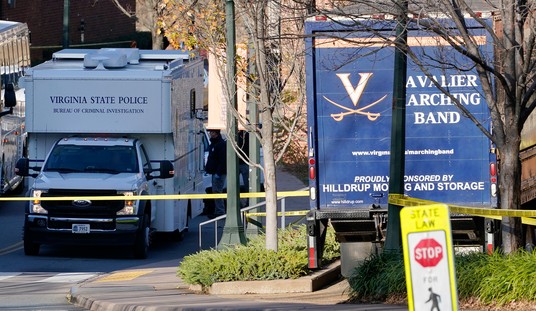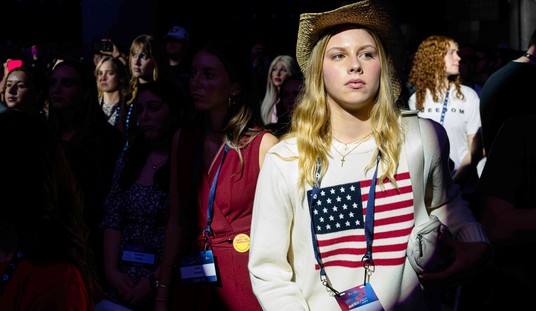Fun fact: When she was but a lowly House member from upstate New York, Gillibrand was known for being a pro-gun Democrat. The moment she was appointed to the Senate to replace Hillary and started thinking of a national future, she became “flexible” on the issue and now proves her progressive virtue to the left by babbling occasional idiocies like this.
How can we end violence in our communities if criminals can get easy access to equipment that'd make it hard for police to solve gun crimes?
— Kirsten Gillibrand (@SenGillibrand) March 14, 2017
Oddly enough, criminals haven’t yet deduced the allegedly awesome crime-evading powers of the silencer. A Chicago PD spokesman told Steve Chapman earlier this year that they rarely recover silencers in gun crimes; an ATF study found that, of 1.3 million silencers in use in the United States, an average of … 44 are used in the commission of crimes annually. Why would America’s felons leave a tool like this at home when, per Gillibrand, it could mean the difference between capture and escape? Are they idiots?
No, Gillibrand’s the idiot. The man to read on this subject is Sean Davis, who tackled it in January after Donald Trump Jr called for loosening restrictions on the devices and the left started hyperventilating. What nefarious purpose could Trump have had for promoting silencers, liberals wondered? Well, Davis noted, there might be a clue in the fact that they’re not actually called “silencers,” they’re called “suppressors.” Reason being, they don’t silence anything. They slightly suppress the sound of the gunshot to make it less damaging to the shooter’s ears. Emphasis on “slightly”:
A decent suppressor for an AR-15 (.223/5.56mm) can reduce the sound of that rifle being fired by 30-35 dB. Thus, a quality suppressor can turn what would’ve been a 165 dB, eardrum-bursting gunshot into a mere 135 dB gunshot — roughly the same volume as a jackhammer you might see a construction worker using. Remember that pain and permanent hearing damage begins at 140 dB.
“But why don’t you just wear ear plugs or over-the-ear hearing protection instead of using a suppressor?” you might ask. It’s a good question. There are a number of reasons why suppressors make sense even if you always double up on ear protection (ear plugs and over-the-ear muffs) when you’re at the range or hunting game. Standard over-the-ear hearing protection combined with the use of ear plugs will reduce the sound of a gunshot by about 30-35 dB, the same reduction as a suppressor. So standard hearing protection, which is far cheaper, obviously makes more sense than getting a suppressor, right?
[S]ustained exposure to volumes in the 130-140 dB range, which is what you would experience shooting a typical AR-15 with doubled-up hearing protection, will undoubtedly wreak havoc on your hearing. Just ask anybody who works on a flight line or who hunts regularly. There’s no good reason to make it hard for law-abiding citizens to double-up on hearing protection and use a suppressor to reduce the likelihood of permanent hearing damage.
Go figure that criminals wouldn’t show much interest in a gun accessory that makes the weapon heavier and harder to conceal for the sake of reducing the sound of their gunshots from “blow your eardrums out” loud to merely traumatically loud. In fact, notes Davis, because 90 percent of the guns used in murders in the U.S. have non-threaded barrels, the murderer couldn’t have used a suppressor even if he wanted to. A suppressor is a sportsman’s device, designed to minimize the health risk to someone who shoots frequently at a range or while hunting with no interest in concealing his weapon. It’s not a criminal’s device, for exactly the opposite reason that Gillibrand gave: It’s not “quiet.”
Via Katie Pavlich, here’s a useful video produced last month by the Daily Signal on how not-silent “silencers” are.








Join the conversation as a VIP Member